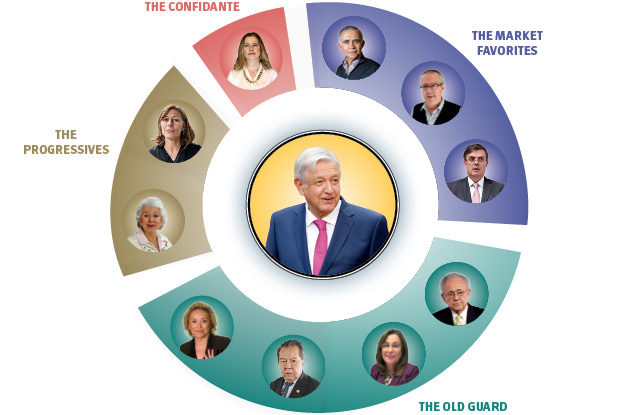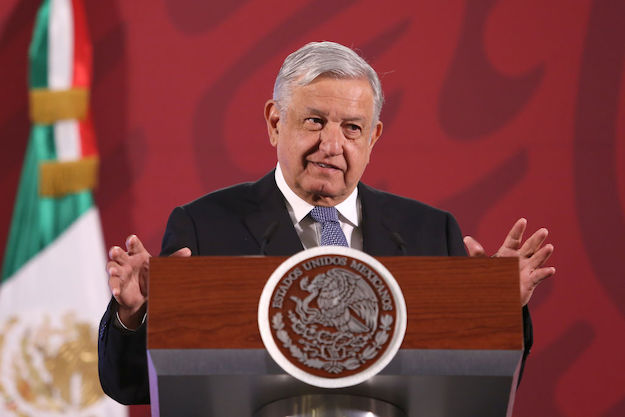This article was adapted from AQ’s latest print issue. To see the rest of our package on Mexican politics, click here. | Leer en español
The Market Favorites
 Alfonso Romo, 68
Alfonso Romo, 68
Chief of Staff
Who he is: The former Olympic equestrian is AMLO’s link to the private sector. The millionaire has investment interests in insurance, agribusiness and tobacco, and is the former head of Vector, a Monterrey-based brokerage firm. He has been in the president’s corner since the campaign.
What he’ll do: Romo says he wants to make Mexico a “paradise for investment” by improving security conditions and the rule of law and spending on infrastructure. Whether he and other business-friendly pragmatists can exert influence over the more nationalist wing of the cabinet will be a key question early in AMLO’s term. If the president stays on investors’ good side, Romo will be a big part of the reason why.
 Carlos Urzúa, 63
Carlos Urzúa, 63
Treasury Secretary
Who he is: A moderating influence on the new government. The University of Wisconsin-trained economist ran a tight fiscal ship as finance chief when López Obrador was mayor of Mexico City. In November 2018, Urzúa stepped in to calm investors after Morena’s surprise proposal to limit bank fees hit the market’s panic button.
What he’ll do: His 2019 budget proposal aims for a primary surplus of 1.0 percent of GDP, which reins in spending, and he has said repeatedly that the administration will respect Central Bank autonomy. Having Urzúa running the books lends credibility to AMLO’s claim that he recognizes the limits that macroeconomic conditions put on his plans.
 Marcelo Ebrard, 59
Marcelo Ebrard, 59
Foreign Secretary
Who he is: A popular former mayor of Mexico City, where he continued some programs initiated by AMLO himself, Ebrard also shares the president’s roots in the PRI and PRD parties. He was briefly a rival vying for the nomination to run in the 2012 presidential elections. More even-handed and politically orthodox than his current boss, Ebrard returned to politics and Mexico to support Morena in 2017, after three years in France.
What he’ll do: Ebrard has so far taken a cautious approach to dealing with U.S. President Donald Trump, and may compromise on a migration policy that leaves Mexico sharing significant responsibility for Central American migrants heading to the U.S. He has echoed AMLO’s preference to stay out of other countries’ domestic affairs — including in Nicaragua and, notably, Venezuela. He defended inviting Nicolás Maduro to attend AMLO’s inauguration, saying that “Mexico can’t exclude anyone,” and said the administration would maintain its policy of non-intervention after opposition congressman Juan Guaidó pushed a claim on Venezuela’s presidency earlier this month.
The Old Guard
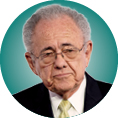 Javier Jiménez Espriú, 81
Javier Jiménez Espriú, 81
Communications and Transportation Secretary
Who he is: An engineer, academic, and former PRI technocrat, Jiménez was the public face of AMLO’s airport consultation – and made little effort to hide his preference for canceling the $13 billion project then underway outside Mexico City.
What he’ll do: Jiménez will oversee renovations on three airports in and around the capital that, according to the administration, will serve as a suitable replacement for the canceled project. His other priorities include construction of a $7.5 billion tourist train in the Yucatan Peninsula, and a rail link between Mexico’s Pacific and Gulf coasts on the Isthmus of Tehuantepec.
 Rocío Nahle, 54
Rocío Nahle, 54
Energy Secretary
Who she is: AMLO’s energy advisers tend to come from the nationalist end of the political spectrum, and Nahle is no exception. A petrochemical engineer with years working at state oil firm Pemex, Nahle was consistently critical of both the design and results of former President Enrique Peña Nieto’s 2014 energy reform
What she’ll do: Reversing the reform would require an unlikely constitutional change, but the pace of new contracts with foreign energy companies may slow considerably; new auction rounds for oil and electricity projects have already been postponed. Nahle is the tip of the spear pushing for AMLO’s plans to beef up crude production, build new refineries and restore Pemex’s pride of place as a national champion.
 Porfirio Muñoz Ledo, 85
Porfirio Muñoz Ledo, 85
Congressman
Who he is: A PRD founder and an AMLO ally in the 2006 elections, Muñoz Ledo became president of Mexico’s Chamber of Deputies in 2018 as a congressman for Morena. He’s one of the country’s most experienced politicians, with a long, and loud, history. As part of the old guard of the PRI, he became famous for controversial positions and tactics such as disrupting then-president Miguel de la Madrid’s three-hour state of the union address.
What he’ll do: In a role similar to that of a U.S. speaker of the house, Muñoz Ledo — and others like Mario Delgado, Martí Batres and Ricardo Monreal — will help usher AMLO’s agenda through the Morena-dominated Congress.
 Elba Esther Gordillo, 73
Elba Esther Gordillo, 73
Union Leader
Who he is: The former leader of Mexico’s largest teachers’ union was acquitted of corruption charges and released from prison just before AMLO took office. Her opposition to former President Enrique Peña Nieto’s education reform is cited as the reason she was arrested in the first place — and she still wields considerable influence among rank-and-file educators.
What he’ll do: AMLO already canceled teacher evaluations and other aspects of Peña Nieto’s education reform, and a Gordillo ally is now head of the union. Without her support, the president and his education secretary, Esteban Moctezuma, will have a difficult time replacing their predecessor’s vision with anything of substance.
The Progressives
 Olga Sánchez Cordero, 71
Olga Sánchez Cordero, 71
Interior Secretary
Who she is: A former Supreme Court minister who’s on the socially progressive end of AMLO’s cabinet, Sánchez is the administration’s leading voice for liberalizing drug policy and offering amnesty for low-level growers and traffickers.
What she’ll do: As interior secretary Sánchez is responsible for everything from human rights to migration policy. While the secretary of public security, Alfonso Durazo, is charged with overseeing the hard end of AMLO’s plan to reduce violence, Sánchez’s vision for dealing with the root causes of crime makes her a vital voice on the president’s security team. The first woman to hold what is one of Mexico’s most powerful political positions, Sánchez is also expected to focus attention on gender equality and women’s rights.
 Tatiana Clouthier, 54
Tatiana Clouthier, 54
Congresswoman
Who she is: Daughter of the PAN’s 1988 presidential candidate, Clouthier split with her father’s party in 2005 and was an independent until joining Morena in 2017. Along with Marcelo Ebrard and Beatriz Gutiérrez, she is the subject of early media speculation over a presidential run in 2024.
What she’ll do: As AMLO’s campaign manager, Clouthier helped woo skeptical young voters with a progressive message on the environment and social justice and a slick social media campaign. She turned down a position as undersecretary of the interior so she could remain in Congress, but her support as a legislator and popular public figure will help shape public opinion around AMLO’s agenda.
The Confidante
 Beatriz Gutiérrez, 50
Beatriz Gutiérrez, 50
AMLO’s Wife
Who he is: A writer and researcher with a doctorate in literary theory, Gutiérrez and López Obrador married in 2006. After his election she refused the title of first lady, as well as the traditional position for Mexico’s presidential spouses in the national organization for family development. Instead, she’ll head a committee on historic and cultural memory.
What he’ll do: AMLO is seen by many as stubborn and committed to his ideas — and in the words of one analyst, Gutiérrez is “the only person AMLO listens to.”
Others to watch: Mario Delgado, Alejandro Gertz Manero, Gabriel García Hernández, Octavio Romero, Alfonso Durazo
The Opposition
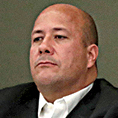 Enrique Alfaro, 45
Enrique Alfaro, 45
Governor
Why he’s the opposition: The former mayor of Guadalajara and now governor of Jalisco has been one of the most vocal opponents of AMLO’s creation of “superdelegates” to oversee state spending. He has also confronted the president over gas shortages that hit crisis levels earlier this year. Though he’s discounted a run at the presidency in 2024, Alfaro’s vocal opposition has quickly raised his profile on the national stage.
What to expect: Alfaro already played a key role in pushing AMLO to limit his superdelegates’ involvement in coordinating security policy, and has spoken out against the president’s plan not to pursue and prosecute corruption in previous administrations. If he chooses to take on the president, Alfaro will have local support: Though now an independent, his former Movimiento Ciudadano party holds several key mayors’ offices and a plurality of seats in Jalisco’s state congress, one of just a handful in which Morena is a significant minority.
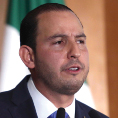 Marko Cortés, 41
Marko Cortés, 41
PAN Party President
Why he’s the opposition: Last July’s election left Mexico’s traditional parties in disarray, but the best positioned to regain strength is probably the PAN. The party ceded fewer supporters to Morena than the PRI or PRD, and its ideological framework is clearly different from the president’s party. A socially and fiscally conservative platform may offer a base around which to rebuild.
What to expect: Cortés took control of the party in November, and has criticized what he calls AMLO’s quest to centralize power. Cortés says the PAN will push back on several of the president’s initiatives, from his security plan to his federal superdelegates. The PAN could indeed slow parts of AMLO’s agenda, especially constitutional changes requiring a two-thirds majority in Congress. But Cortés’ first task is to sort out leadership struggles within the party.
Others to watch: Financial markets, Javier Corral, the Supreme Court, Martha Tagle
—
Russell is a senior editor and correspondent in Mexico City for AQ. Follow him on Twitter @BenPaulRussell
Photo Credits: Clockwise from Romo: Brett Gundlock/Bloomberg/Getty; Pedro Pardo/AFP/Getty; Alfredo Estrella/AFP/Getty; Luis Antonio Rojas/Bloomberg; David Alire García/Reuters; Agencia El Universal/Juan Boites/RCC; Alfredo Estrella/AFP/Getty; Agencia El Universal/Lucía Godínez/RCC/AP; Lujan Agusti/Bloomberg/Getty; Edgard Garrido/Reuters; AMLO: Agencia El Universal/Agustín Salinas/EVZ/GDA/AP


